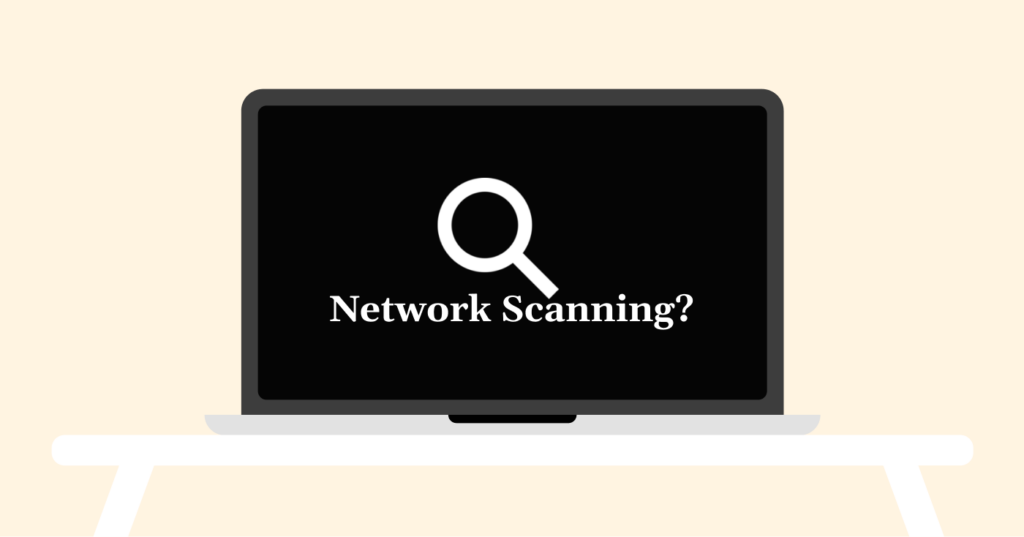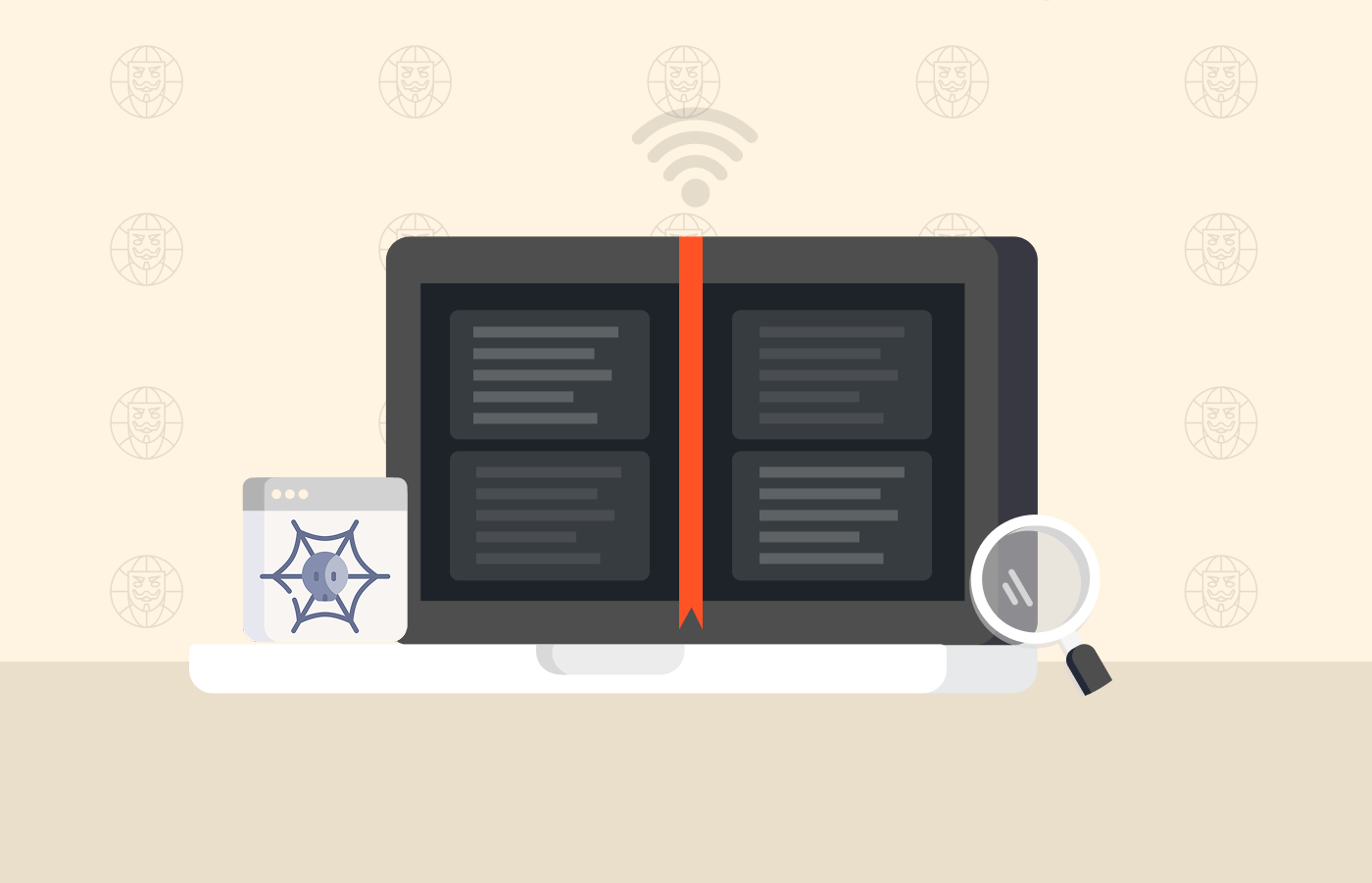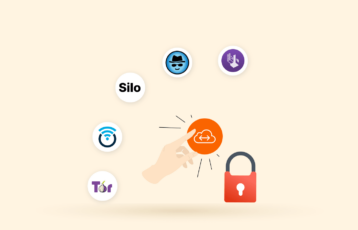
Network and IP scanning tools are software that allows network administrators or users to find loopholes in the environment. That, in turn, is the first step in safeguarding from unexpected and unwanted behavior within the system that can become problematic or even threatening. Securing a computer network is hard, and scanning tools are a convenient help.
This article shares the best IP scanners handpicked for everyday professional use. The list includes both free and commercial software, so you can use them as you prefer.
Quick overview of the best 27 network scanners today
If you are familiar with network and IP scanning and want to know the best tools, here is a list of the 27 picks described in this guide. But if you’re curious to know more details on every option, you can skip this section.
- ManageEngine OpUtils. A powerful and versatile scanner that can give you your network’s full picture in real-time.
- Security Event Manager. Improves security with emphasis on logs and data collection.
- Intruder. The most thorough threat scanner on the list. It emphasizes security and shows you how your network looks for third parties.
- Auvik. It’s network scanning made simple and automatic. In addition, it can encrypt the network traffic with the military-grade AES-256 algorithm.
- Paessler. A tool for advanced infrastructure management with data available as graphs and stats.
- Open Port Scanner. Scans available IP addresses as well as its TCPs and UDPs.
- SolarWinds Network Device Scanner. It scans a network to locate and monitor the devices available.
- IP Control Bundle. This tool focuses on reporting and monitoring the network’s accessible and used IP addresses.
- Network Bandwidth Analyzer. A monitoring tool for network performance. It lets you determine nodes that use too much bandwidth.
- Skyboxsecurity. This network scanner easily decodes the most intricate and complicated networks.
- ThousandEyes. A network monitoring tool specialized in diagnosing and triaging network problems for quick remediation.
- BeyondTrust. An excellent overall free network scanner that monitors the network’s essential stats and detects problems.
- Qualys. A streamlined security solution that can also work across cloud systems.
- Spiceworks. An easy-to-use scanner with real-time alerts for your vital devices.
- Site24x7. An integrated tool to keep vigilance over servers, apps, websites, and clouds simultaneously.
- Nagios. It is an open-source continuous monitoring tool.
- Nessus. A very versatile network scanner intended to make your experience easy and intuitive.
- GFI LanGuard. A scanner focused on mobile devices and patch management for several operating systems.
- Advanced IP Scanner. A free scanner packs a lot of punch with features usually not found in scanners.
- Domotz. A scanner for analyzing the most advanced network data and for remote control.
- Essential NetTools. It’s a scanning suite of tools offering many useful features for network administration.
- LogicMonitor. It works on Linux and Windows, providing a range of options for alerts, performance graphs, and user management.
- Nikto2. One of the best preventive scanners, ready to detect more than 7000 risky applications.
- SoftPerfect Network Scanner. It supports IPv6 addresses and detects those elusive hardware MAC addresses. It runs from a USB stick without installation.
- Nexpose Rapid7. A real-time scanner aimed to find new threats so you can neutralize them on time.
- Snort. An intrusion detection and prevention suite of network tools.
- Wireshark. Another open-source scanner exhibiting multi-platform capabilities.
What is network scanning?

As the term implies, network scanning is the process of analyzing the entire network for any possible security lapse. It includes scanning everything connected to a network, such as all the devices, operating systems, ports, active hosts, filtering systems, and the entire traffic. This thorough IT infrastructure assessment helps the admins apply remedial measures by proactively detecting vulnerabilities. That’s how network scanning is crucial, preventing disastrous situations.
While such a detailed scanning would be tedious to conduct manually, thanks to the dedicated network scanners, you can quickly monitor the entire network. Besides detecting security bugs, these tools also help in real-time vulnerability detection and alert generation. That means once you deploy such a tool, you don’t have to worry about going after every endpoint for possible flaws, as the tool will keep monitoring it for you.
The best 27 network scanners for 2024 – Detailed list

Now that you know about network scanning, let’s move on to the best, free-to-use network scanners you can use today.
1. ManageEngine OpUtils
ManageEngine OpUtils makes a complicated task, well, still complex but precise. It will give you a comprehensive real-time view of your network infrastructure, including address tracking and network scanning. The tool scans across several subnets, routers, and switch ports. That’s how it shows you where your network’s issues are and helps you troubleshoot them.
The OpUtils can automate network scanning to run at pre-scheduled times. It’s scalable and supports many subnets and IPv4 and IPv6 addresses. Besides, it detects rogue devices through streamlined network scanning. Other noteworthy functionalities include generating threshold-based alerts to detect emerging problems that could escalate and creating reports you can use later to audit your network. ManageEngine OpUtils is popular because of its short time to boot and seamless integration into the network environment.
2. Security Event Manager
Security Event Manager, a robust product from the tech giant SolarWinds, makes your network safer and shows you compliance easily. It has a central log collection system and a built-in file integrity monitoring capability.
Many users will like the intuitive dashboard in Security Event Manager, the automated response to incidents, and the real-time log analyzer. Additionally, it comes with compliance reporting tools out of the box.
3. Intruder
The Intruder Network Vulnerability Scanner explores your network to find security shortcomings within your IT environment.
An intruder can keep you safe from hackers regardless of your network’s size because its security checks are top of the industry, the monitoring is continual, and the platform is intuitive and friendly.
Moreover, this scanner will show you a network overview to see your network’s “big picture” from an external perspective. Notifications can be set up when services and exposed ports change.
The threat coverage scans for over 10,000 vulnerabilities and detects weak configurations, missing patches, and application problems (SQL injections, for example). Moreover, it identifies emerging threats, and its API integrates with your CI/CD pipeline.
4. Auvik
Auvik is all about friendly network scanning and monitoring. Its perennially updated device logs can help you find the root causes of any problem. You can automate recovery and configuration backup.
Other features in Auvik include automatic security and performance updates, encrypting network data with the AES-256 algorithm, smart network traffic analysis, generating proactive notifications, and easy navigation. Moreover, it also helps create powerful workflows and simplifies performance monitoring and troubleshooting.
5. Paessler
The Paessler software suite is a security network scanning tool with advanced infrastructure management capability. It monitors IT infrastructures of various types like SQL, REST APIS, Sniffing, WMI, and SNMP.
The data you will monitor or configure is available as numbers, statistics, and graphs. Also, the tool handles failovers automatically. It also has several web interfaces, gives you network visualization maps, and monitors various locations within the network.
6. Open Port Scanner
Open Port Scanner from SolarWinds checks the available IP address, the related TCP, and UDP. It tracks users and the connection activity on a given device for you. If you like deploying bulk configurations, Open Port Scanner can do it.
The tool works in multithreaded mode, thus reducing scanning times, offering bulk configuration, and working from the command line.
7. SolarWinds Network Device Scanner
As its name suggests, this tool focuses on the devices in a network. It allows you to discover and monitor them.
SolarWinds Network Device Scanner can develop an automatic map of your network’s topology. This tool detects device vulnerabilities and availability. Also, it scans devices’ performance and presents an easily readable matrix. Besides, it exhibits a user-friendly interface and allows charts and dashboard customization. These features let you detect the IP address of faulty devices right away.
8. SolarWinds IP Control Bundle
Another SolarWinds tool, the IP Control Bundle, helps you manage your IPs easily. It monitors subnets with the utmost simplicity and keeps track of the available IP addresses.
It reports detailed information on IP reports, can detect IP address conflicts, finds IP addresses within the network, and supports more than 254 IP addresses.
9. Network Bandwidth Analyzer
SolarWinds seemingly takes the lead in producing the best network scanning tools. Another noteworthy mention from these guys is the SolarWinds Network Bandwidth Analyzer Pack.
It’s a network performance observation tool that tracks availability, response times, switches, etc.
It can show you the network application hoarding all the bandwidth, provides visual analysis for devices, and monitors network faults. You can also manipulate metrics with drag-and-drop and monitor the logical side of the SDN (Software Defined Networking) environment.
10. Skyboxsecurity
Skyboxsecurity is the monitoring tool that provides seamless network optics across physical, IT, and multi-cloud environments. These sophistications make the tool useful for large and complex enterprise networks.
This software lets you develop and interact with a network topology model, assets, and security controls. Then, when a connectivity issue arises, it finds the root cause for the problem to maximize the network’s uptime.
11. ThousandEyes
The ThousandEyes network monitor lets you trace a network problem to its root cause anywhere. It scans the whole network infrastructure and maps the internet performance.
This tool presents you with network data in several layers, helping with an in-depth analysis. It also shows you the app delivery across every network and integrates your network data directly into your workflows. Also, it can diagnose and triage any traffic problem rapidly in real time and share interactive data sets to let you collaborate with the service providers.
12. BeyondTrust
BeyondTrust is an open-source network scanning tool that searches for configuration issues, missing patches, devices, virtual environments, and operating systems.
The network scanner’s interface is user-friendly enough to enhance productivity. It helps you manage patches, improves risk management and prioritization, supports VMWare, scans virtual images, and supports integration with vCenter.
13. Qualys
Qualys can streamline your organization’s security and compliance solutions. It also brings security as a component into its digital evolution initiatives. Essentially, it keeps an eye on the online cloud systems’ performance.
The tool typically stores data in an n-tiered architecture of load-balanced servers, so it’s always safe. Plus, installing and managing data with it needs no hardware. In addition, it’s scalable and capable of end-to-end network scanning, performs real-time network data analysis, and deals with threats in real-time.
14. Spiceworks
Spiceworks is a network scanning tool that provides you with all the essential features. In addition, the networks’ status and your most crucial device alerts are real-time.
It’s simple and easy to install, the alert thresholds are customizable, and customer support is 100% free of charge (online, through live chat, or on the phone). In addition, Spiceworks will give you the quick insights you need to fix the systems’ performance if your network is slow, sluggish, overworked, or overwhelmed.
15. Site24x7
This ambitious software pretends to be the network monitoring Swiss army knife. It monitors everything simultaneously (your servers, applications, website, and clouds). Site24x7 was built with IT and DevOps to help create a more even user experience for users who arrive at the same websites using different environments and devices.
Other features include automatically scanning every device available within an IP range. It supports the hardware of more than 200 providers (Dell, JP, Cisco, and Canon included). In addition, it has more than four thousand customizable device templates.
16. Nagios
Nagios is an open-source project. It provides a network scanning tool for continuous monitoring. In addition, it delivers information for the network, infrastructure, and system as a whole. The continual monitoring of systems is exceedingly helpful in the DevOps culture and its business processes, systems, applications, and services.
Nagios will help you define your network’s host hierarchy through parent hosts. Any changing condition in the environment will give you an alert. The configuration is stored in a complete directory, so you can tweak it through individual files until it’s as custom to your needs as you want. It supports redundant monitoring.
With Nagios, your network can enjoy high scalability without losing any visibility. Thus, you’re always able to solve quickly the problems that come with large networks.
17. Nessus
Tenable’s network scanner, Nessus, is a versatile tool that analyzes compliance, searches for sensitive data, looks at website traffic, and scans IP addresses. The scanning process will be straightforward thanks to its intuitive and easy-to-use interface.
This scanner will secure your cloud, operational technology devices, and traditional IT assets. It can scan the whole network with unlimited assessments. Its visibility into your network is accurate and supports several plugins that enhance its power. This scanner can also detect SQL injection attacks.
18. GFI LanGuard
GFI LanGuard can manage patches for Windows, macOS, and even Linux! This patch management feature extends to many third-party applications. In addition, it scans your network and any mobile device connected to it to find vulnerabilities.
It has a web reporting console. It also tracks the latest network problems, integrates with other security apps, and supports Virtual Environments.
19. Advanced IP Scanner
The Advanced IP Scanner is a free scanning tool with options you usually can’t find in a standard scanner. For example, with Advanced IP Scanner, you can access shared folders, control several computers remotely, and even turn on and off your PC.
You can scan a network without installing any software with the Advanced IP Scanner. Besides, it detects MAC addresses, supports exporting scan results as CSV files, and allows you to turn on or off a remote computer.
20. Domotz
Domotz enables you to analyze advanced network data and manage that network remotely. In addition, it can handle and troubleshoot several networks concurrently and prevent tech-related issues from becoming problems.
It monitors any type and amount of devices and automatically discovers them within the network. It provides alerts for various events, device attributes, and changes. In addition, it can test your network’s speeds on-demand or as scheduled. Lastly, you can perform your administrative duties remotely with Domotz.
21. Essential NetTools
The Essential NetTools from TamoSoft is a collection of network scanning tools, administration, and security tools. Those tools enable you to scan an active network within the specified range of IP addresses.
These tools can show you a PC’s network connections, up to UDP, and open TCP ports. Also, it monitors and logs external connections to your PC’s shared resources.
Moreover, the tool performs security checks on your network as a whole and also on specific computers. Finally, it shows you the running processes list with every relevant detail on sight.
22. LogicMonitor
LogicMonitor traces an application’s predefined data sources for monitoring, graphing, and alerting you about events. Specifically, generating alerts is its biggest strength as it keeps you updated via SMS alerts, emails, phone, or even browser alerts. This tool also supports “alert routing” for specified groups. It lets you manage users based on their roles and presents performance graphs.
23. Nikto2
It is among the best network scanners, scanning web servers for over 7,000 potentially dangerous apps. In addition, it can identify server configuration items such as multiple index files and HTTP server options.
Prominent functionalities of Nikto2 include support for an HTTP proxy, outdated server components detection, scanning multiple ports and servers, and host authentication. Moreover, it supports report customization and lets you export reports in HTML, plain text, XML, or CSV formats.
24. SoftPerfect Network Scanner
SoftPerfect Network Scanner gives you a portable option because it can run from a USB drive without any previous installation. That alone makes it practical beyond the competitors.
It supports IPv4 and IPv6 addresses. It can also detect hardware MAC addresses, allowing you to identify a device or computer without ambiguity.
25. Rapid7
The Nexpose Rapid7 is a real-time network scanner that vigilantly detects new threats as they arise. This, in turn, allows you to deal with them before they become a problem. So, it removes a lot of friction involved in managing malicious activity.
Besides, it detects and scans new devices on the network, shares details about network issues for prompt fixes, and supports integration with Metasploit.
26. Snort
Snort is an open-source project with a robust network intrusion detection and prevention system.
It analyses IP addresses and network traffic passing through them. It can also detect worms, scan ports, and find other network exploits via protocol analysis.
27. WireShark
WireShark is an open-source network tool known for its multi-platform network analyzing functionalities. It scans an active client and server on a live network for data vulnerabilities.
Also, it shows the stream construction of TCP sessions, ultimately making it easy to view traffic. Besides, it provides a TCP dump console version, “tshark” for data packet analysis.
What to consider when choosing an IP scanning tool?

Network scanners are your eyes and hands as a network manager. Therefore, the choice of tools that enable you to do your job is essential to the success you’ll achieve.
Before you go ahead and pick one or more options from the list above (as many of them work complementarily with each other), you need to understand the scanning capabilities and functional advantages each scanner has. So, while free or easy-to-use software might attract you, ask yourself, “Will it protect from advanced vulnerabilities?” For example, will it do a comprehensive port scan over your network?
Fortunately, many of the best 27 network and IP scanners listed above are free software. Hence, you can try them for as long as you want before you decide they’re the way to go for your network. A few of them don’t even need you to install anything.
But of course, being free isn’t the sole parameter to pick one from the many network scanning tools available today. Instead, you should expand your research area, include different parameters, and then carefully handpick a tool to assess its feasibility.
Factors important for an excellent network scanning tool
The first thing to consider while picking any of the best network scanning tools is the status of your network. That is, what your network needs the most at a given moment.
Besides, also keep in mind the following few things:
- Customer support availability and quality.
- The tool’s learning curve –how hard or costly will it be to train your employees to use this tool?
- Tool’s license cost. Is it worth it? Is there an excellent free tool that does the same job?
- Compatibility with your network.
- Hardware and software requirements of every scanner.
- Expert reviews from other network admins about the given tool in forums, professional clubs, and other places.
FAQs
A network scanner is a piece of software (commercial or free) that scans a network to learn about the status of the nodes in the network or to find security vulnerabilities. It can also detect and categorize the devices in the network, characterizing them according to many different criteria.
Every tool in this top 27 list is excellent in what it offers. But if you want to know a few specific names to try first, you can begin with Paessler, Auvik, Intruder, Security Event Manager, and ManageEngine OpUtils.





